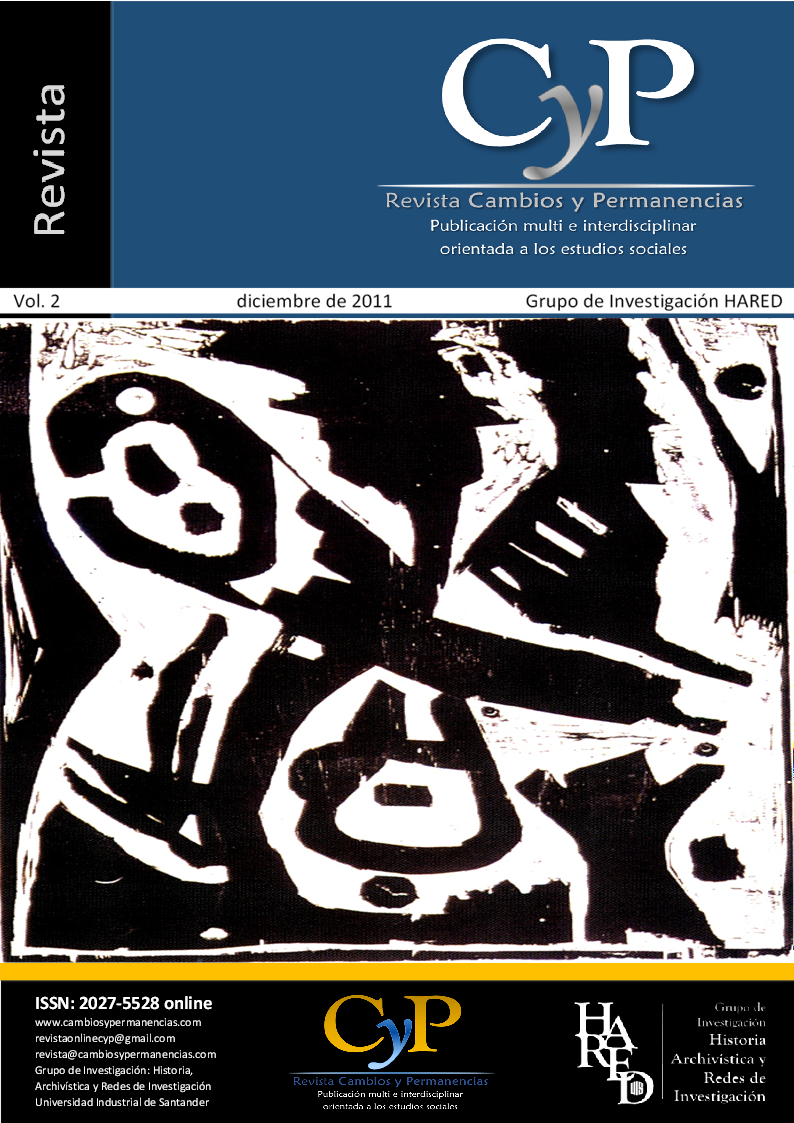THE INDIGENOUS AND THE REPUBLICAN PROJECT OF NATION: BETWEEN THE ENLIGHTENMENT AND THE EVOLUTIONISM. NINETEENTH-CENTURY COLOMBIA. A THEORETICAL APPROACH
Keywords
- Indigenous,
- national identity,
- independence,
- civilization,
- barbarism
- illustration,
- romance,
- racism,
- miscegenation ...More
How to Cite
Abstract
The following article tries to explain of general way the participation of the indigenous communities in the projects of nation of the colombian elite during century XIX. The objective is to observe the variations of the discourse before, during and after of the Independence, to analyze the differents assigned nuances from the indians and to find its connections within the processes of national identity. Like counterbalance to the dominant discourse, has been necessary to bring into consideration the indian discourse for to have an idea on the indigenous perceptions around of the measures dictated by the republican administration. As conclusion, we proposed the political and symbolic use of the indians, positive like negatively, and its later marginalization in the construction and integration of the Colombian nation of century XIX, within an historical frame that basically included two national projects of european spread: illustrated (the first decades of the century) and evolutionist (1850-1880), with a transitional step of the romanticism.
Downloads
References
Gutiérrez Ramos, J. (2000). La voz de los indios de la Nueva Granada frente al proyecto criollo de nación 1820-1830. Anuario de Historia Regional y de las Fronteras, (5), 51-80.
Gutiérrez Ramos, J. (2002). Instituciones indigenistas en el siglo XIX. El proyecto republicano de integración de los indios. Revista Credencial Historia, (146). Recuperado de http://www.lablaa.org/blaavirtual/revistas/credencial/febrero2002/indigenistas.htm
Gutiérrez Ramos, J. (2007). Los indios de Pasto contra la República (1809-1824), Bogotá: ICANH.
Gutiérrez Ramos, J. (2010). Los indígenas en la Independencia. Revista Credencial Historia, (247). Recuperado de http://www.banrepcultural.org/blaavirtual/revistas/credencial/julio2010/indigena.htm
Langebaek, C. H. (2007). Civilización y barbarie: el indio en la literatura criolla en Colombia y Venezuela después de la Independencia. Revista de Estudios Sociales, (26), 46-57. Recuperado de res.uniandes.edu.co/pdf/descargar.php?f=./data/Revista_No_26/04
Larson, B. (2002). Indígenas, élites y Estado en la formación de las repúblicas andinas. Lima: Pontificia Universidad Católica del Perú Fondo Editorial, Instituto de Estudios Peruanos.

